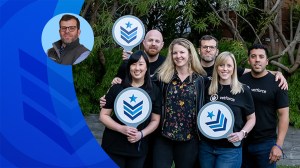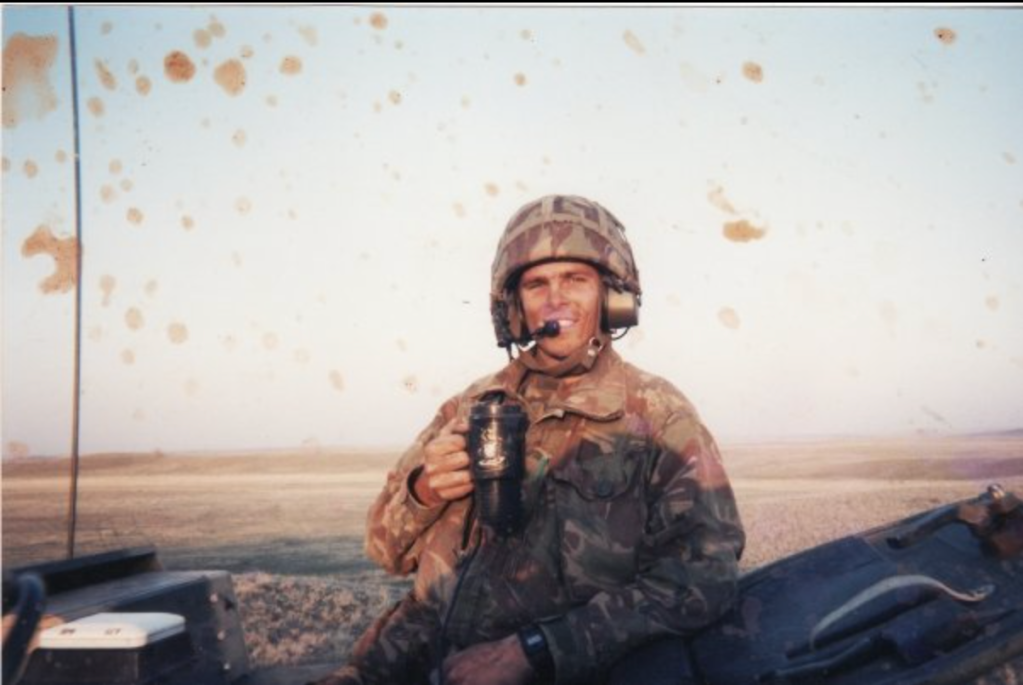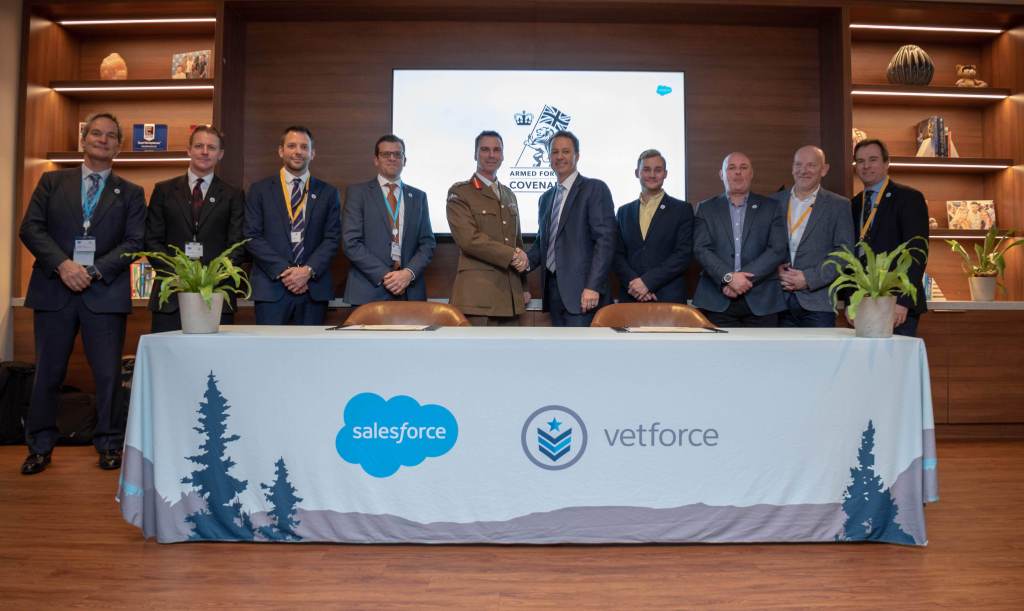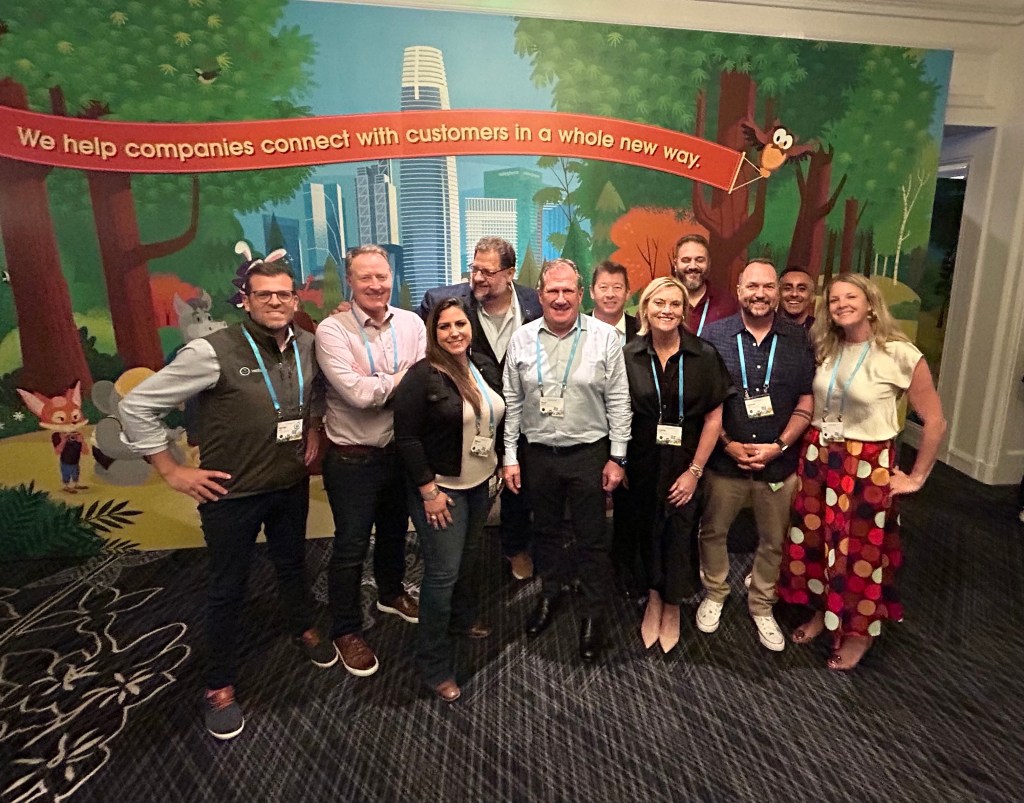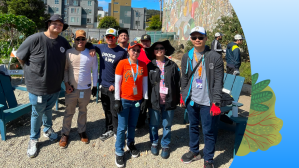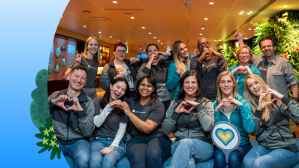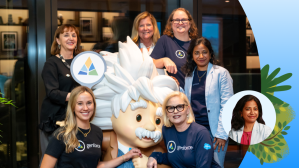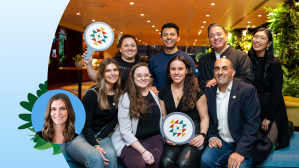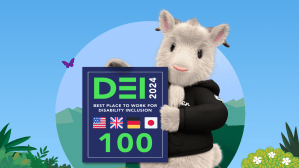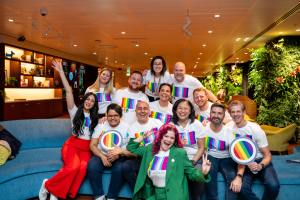Editor’s Note: This article is part of a series that highlights employees leading Salesforce Equality Groups. Read the first two installments here and here.
November is an important month for many people in the Armed Forces, with Veterans Day in the United States and Armistice Day across the United Kingdom and Commonwealth nations on Nov. 11. It is a moment to recognize our servicemen and women and to remember those who gave their lives in service of their countries.
Nearly 6,000 former members of the armed forces, their family members, and allies belong to Vetforce — Salesforce’s Equality Group for our global military community. We spoke with Vetforce President George Griffin to learn more about his career transition from the British Army to the private sector, Vetforce’s impact on communities around the world, and the unique skills veterans contribute to the workplace.
Q. What does Vetforce hope to accomplish as an Equality Group?
Our Equality Group is an incredibly diverse, global community representing all walks of life. Vetforce represents and champions the skills of this community within Salesforce, and creates an environment where members can thrive and excel in their careers. We work to remove barriers to career progression at the company and eliminate misconceptions about what it means to be in the military.
In our communities, we seek to give back. We have a unique commitment to each other based on a shared experience of (or proximity to) military service and a passion for supporting the military community. There’s a shared desire to give back to the community that does so much for all of us — these are men and women who were prepared to put their own lives on the line in service of our respective nations.
Q. What type of work does Vetforce do in the community?
When I left the military, there were a lot of people who helped me move into the business world. I feel like I owe them a great debt. Yet, many veterans don’t receive the same type of support, and that can make it difficult for them to transition to civilian life.
There are a lot of government agencies, commercial organizations, and nonprofits that provide expertise and support for those individuals, but this doesn’t reach everyone and many veterans struggle to find the support they need. Vetforce volunteers work with organizations to help those who are less fortunate and lack access to resources to find their footing as they enter the workforce.
Q. Tell us about the career path that led you to Salesforce.
I was an infantry officer in the British Army for eight years. After leaving the Army, I did a number of jobs mainly in the consulting and leadership development space. Ultimately, I joined Salesforce after working for a company that decided to implement Salesforce.
Now, I’m a Success Director on the UKI public sector team. I work with customers to make sure they’re getting the support they need to maximize their Salesforce investment.
Q. You’re the first Vetforce president that’s not from the U.S. Tell us how you’re bringing a global perspective to the role.
Electing a Brit as the global president of Vetforce demonstrates our Equality Group’s commitment to representing the experiences of employees all over the world.
We try not to be too centralized in our thinking and make sure individual hubs have autonomy to serve their people. There are some significant differences with militaries in different countries, and even with how different countries treat veterans. We try to make sure we understand local nuances and constraints so we can give them the right resources.
Our approach, as a leadership team, is to use military ‘mission command’ — we clearly articulate what we want to achieve in the community and why we want to do it, then we leave the how up to the individual hubs. It requires trust and tolerance of mistakes made in good faith. But by approaching it that way, you can drive alignment and cater for the specific needs of our local Vetforce hubs.
Q. What’s the most surprising or unexpected thing you’ve learned during your time as a Vetforce leader?
There are some interesting misconceptions about military service. For example, I’ve heard ‘veterans only know how to follow orders’ or ‘I didn’t know women could serve in the military.’ But I’ve also loved that these questions give me the opportunity to explain and champion the unique and highly valuable, transferable skills of this community to my fellow employees.
Q. Why do veterans and military spouses make great employees and leaders?
Vetforce is full of what we call “servant leaders.” Veterans and military spouses know how to lead with integrity through tough times, be resilient, and get the best out of people.
They also prioritize the needs of others before their own and don’t seek recognition. They have a bias for action and are dependable. They do the things they say they’ll do.
Q. Can you share an example of how Vetforce has helped make an impact on our business?
Vetforce played a large role in shaping training and development courses. We advised on a series of courses on Trailhead — our free, online learning platform — that focus on topics like hiring veterans and military spouses, mental health, and resilience.
We have also had a significant impact on shaping our public sector business. We’re often asked to represent the military community during customer meetings with government organizations. It can be really powerful for customers to see how we support veterans and military spouses both within and outside of Salesforce.
Icebreaker questions
q. What is your favorite author or book that highlights some of the experiences of the military community?
Company Commander by Major Russ Lewis MC and The Art of Action by Stephen Bungay. The first is a fantastic example of leadership and courage in really challenging circumstances; the latter illustrates how the military gets things done through alignment, trust, and autonomy.
q. What has been your favorite Equality Group moment or event?
The Salesforce Military Summit in 2022 was an exceptional event. The love and mutual respect shared between people, many of whom had never met each other before, was astonishing.
q.Outside of work, what are some personal hobbies that bring you joy?
I live in the rural countryside. Being in nature with my family and four dogs is my happy place.
More information:
- Learn more about Salesforce’s fellowship opportunities for military members and spouses
- Learn more about Salesforce’s commitment to Equality and Equality Groups
